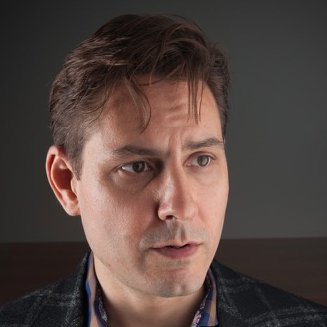
BEIJING — Two Canadian citizens have been detained in China in recent days after Canada seized a Chinese business executive wanted in the U.S. on bank fraud charges.
Below are profiles of the two men, one a diplomat on hiatus working for an international think-tank , the other an entrepreneur and business consultant dealing with North Korea.
———
MICHAEL KOVRIG
A Toronto native and resident of Hong Kong, Kovrig most recently was working as a senior adviser for northeast Asia at the International Crisis Group, a Brussels-based think-tank on global affairs.
A Chinese speaker, Kovrig went on leave without pay to take up his position nearly two years ago and no longer holds a diplomatic passport — or the immunity that bestows. Earlier, he worked as a Canadian diplomat in various roles, including in the consulate general in Hong Kong, where he helped arrange a visit by Prime Minister Justin Trudeau in 2016.
As first secretary and vice consul at the Canadian Embassy in Beijing from 2014 to 2016, Kovrig travelled around China conducting field research on politics and government policies and meeting with contacts, including dissidents. Such work is common among diplomats and foreign journalists in China, but viewed with deep suspicion by China’s ruling Communist Party, raising the possibility Kovrig could be charged with espionage.
Kovrig, believed to be in his late 40s, was a frequent commentator on China affairs for the foreign media, including The Associated Press.
He was very capable and a “very smart guy,” who is extremely knowledgeable about China, a former Canadian ambassador to China, David Mulroney, told the Toronto Star.
Kovrig also worked for the United Nations Development Program after graduating from the University of Toronto and Columbia University.
———
MICHAEL SPAVOR
China-based Spavor is known for his contacts with high-ranking North Korean officials, including leader Kim Jong Un, with whom he has been photographed shaking hands and laughing.
He was also key to bringing NBA player Dennis Rodman to North Korea in 2013 in what was considered a significant, if somewhat quirky, breakthrough in the outside world’s contact with the young head of the hard-line communist regime.
The Communist Party newspaper People’s Daily said in its Twitter feed that Spavor was “suspected of engagement in activities that harm China’s national security,” and was “being investigated by the State Security Bureau of Dandong City” in northeast China’s Liaoning province. It cited local media reports.
In 2015, Spavor founded Paektu Cultural Exchange, a non-governmental organization that works to facilitate sports, cultural, tourism and business exchanges with North Korea. Its mission statement says it aims to “promote greater peace, friendship and understanding.”
It’s one of a few organizations promoting interactions with North Korea that have at times drawn criticism for avoiding criticism of the regime’s human rights abuses. The group’s Facebook page advertises a five-day trip to North Korea over the New Year, including a visit to the Demilitarized Zone and a hot springs resort.
A fluent Korean speaker with 16 years of experience working and studying in East Asia, Spavor was graduated from a university in his hometown of Calgary and studied North Korean affairs at South Korea’s Kangwon National University, according to his Facebook page.